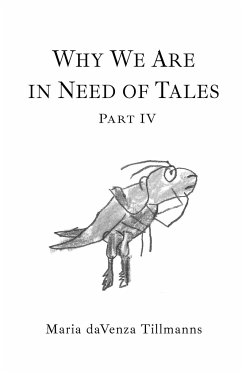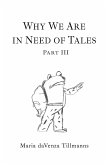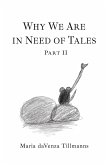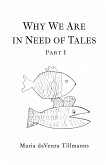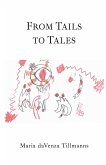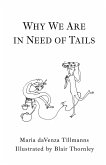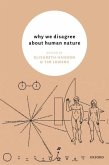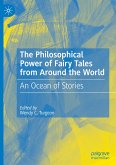In Why We Are in Need of Tails - the first book in the Huk and Tuk series - we learn how we all used to have tails that helped us connect to each other and the world around us. But then we lost our tails - and with that loss went our most nuanced way of communicating with the world. In Why We Are in Need of Tales, Parts I through III, Huk and Tuk find a way to compensate for this loss. They discover that by discussing stories - or tales, if you like - they can recreate that deeper understanding of themselves, each other and the world, which is essential for feeling connected.Now, in Why We Are in Need of Tales, Part IV - the final book in the series - Huk and Tuk look at how we deal with situations that are beyond our control. For example, can we really control nature, or must we find ways to work with nature instead? Although the tales they discuss may seem simple, the complex questions they raise make them rewarding for adults and children to ponder together.
Hinweis: Dieser Artikel kann nur an eine deutsche Lieferadresse ausgeliefert werden.
Hinweis: Dieser Artikel kann nur an eine deutsche Lieferadresse ausgeliefert werden.

